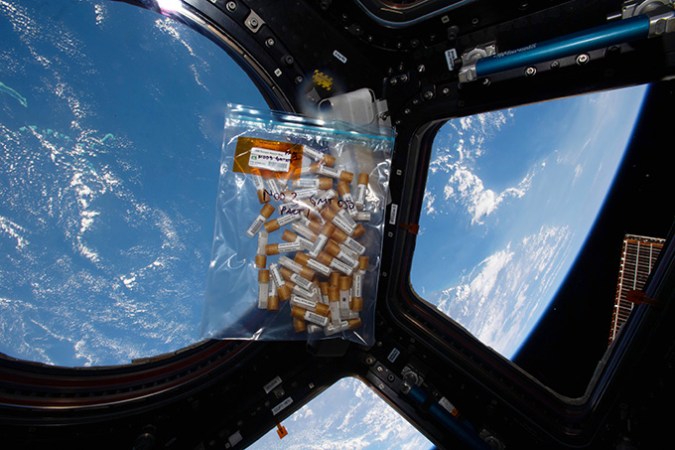With air filters and weekly landing and vacuum, NASA goes to large lengths to keep the International Space Station clean so that astronauts stay healthy. But astronauts still often experience health problems such as immune dysfunction, skin rashes and other inflammatory conditions. One reason may be because ISS can be LOT Pure, a new study suggests.
Golks, small living organisms like bacteria and viruses, play an important role in human health. But surfaces in the ISS reflects a wonderful lack of microbial diversity, Rodolfo Salido Benítez, a bioengineer at the University of California, San Diego and colleagues report on February 27 lockup.
Astronauts shake the surfaces in the kitchen, bath, dining space and other areas in ISS. They then sent 803 samples to Benitez and colleagues for analysis.
ISS has lower microbial diversity than most buildings on Earth. And almost all of those germs come from humans and building materials, while less than 0.3 percent are from natural environmental resources such as soil and water. Like most indoors on Earth, most germs emanate from human skin.
Inside and outside the body, germs compete for resources and space, so keeping a varied group keeps each of them taking over and cause health problems. Low microbial diversity in hospitals, for example, leads to a higher risk of infection. Even germs in your home can affect your health. One study found that Amish communities have a lower risk of asthma than other communities with similar lifestyles because their home dust contains germs from farm animals.

“If we are out, we are generally exposed to the much more microbial diversity from animal or soil touch,” says Sean Gibbons, a microbiome researcher at the Institute for Systems Biology in Seattle. “When we are inside, these walls, these surfaces are acting as mirrors. They are essentially reflecting on our microbial diversity again. “
Keeping a healthy diversity of germs in the closed spaces will be a growing concern as astronauts spend more time in space and start new missions. Scientists will need to test new ways to add more “good germs” to the mix, such as the behavior of animals on board or stocking of the pantry released with fermented foods, says Pieter Dorrestein, a chemical biologist at UC San Diego.
“The reality is that we will dwell in space at one point, so this work will give us the first penetration in terms of the things we need to add and remove,” says Dorrestein. “The most important message we can go through is how important it is not only to see what is present, but also what is missing.”
#International #Space #Station #lacks #microbial #diversity #clean
Image Source : www.sciencenews.org